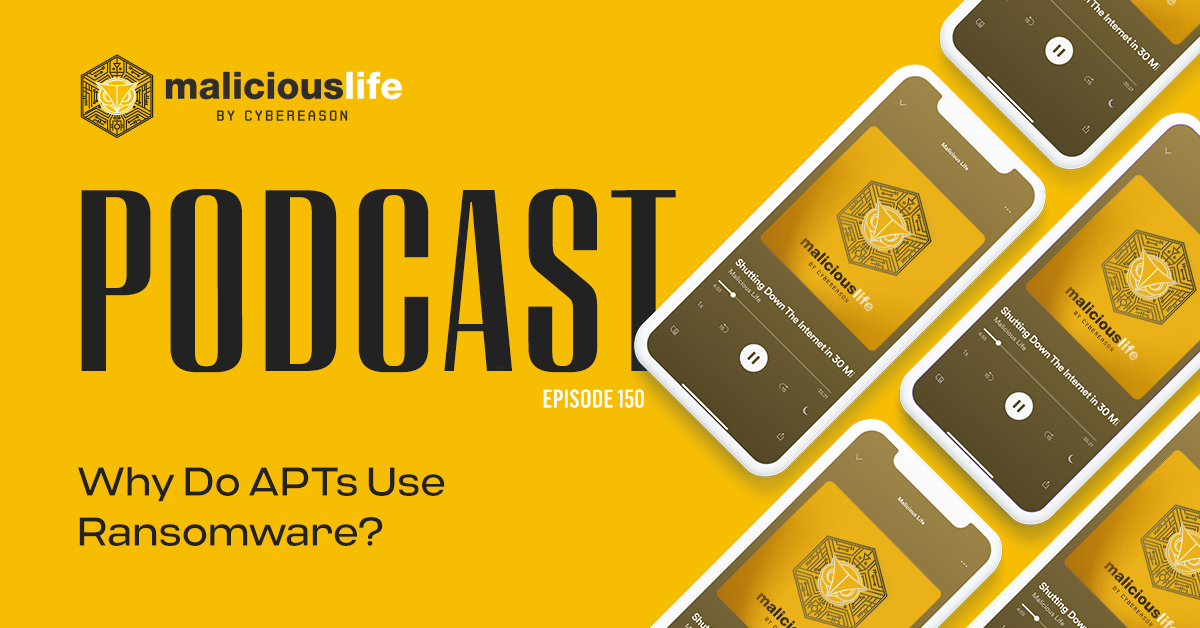
Malicious Life Podcast: Why Do APTs Use Ransomware?
Threat Research lead Assaf Dahan discusses new discoveries about Iranian APTs Moses Staff and Phosphorus that blur the line between state-sponsored attacks and criminal activity - check it out…
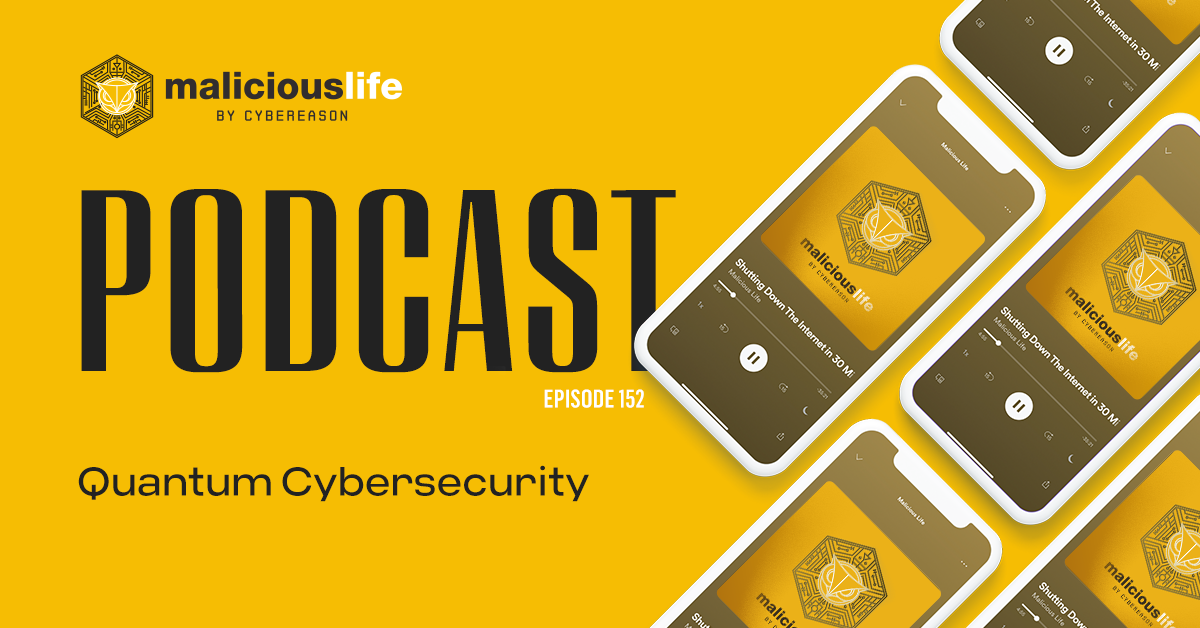
Malicious Life Podcast
Quantum Computing is a fascinating and revolutionary technology that has been gaining significant ground in the past decade, with researchers from both academia and the commercial sector - such as Google and IBM - announcing major breakthroughs every few weeks. Mike Redding, CTO of Quantropi, a company specializing in Quantum Encryption - claims that this revolution is even closer than most of us think - check it out…
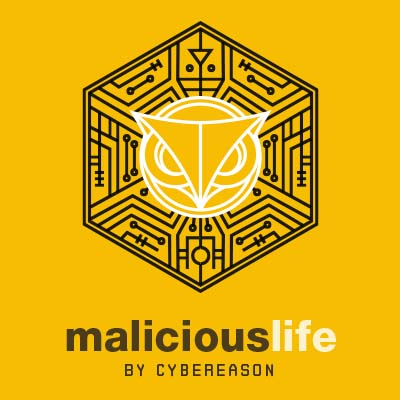
The Malicious Life Podcast by Cybereason examines the human and technical factors behind the scenes that make cybercrime what it is today. Malicious Life explores the people and the stories behind the cybersecurity industry and its evolution, with host Ran Levi interviewing hackers and other security industry experts about hacking culture and the cyber attacks that define today’s threat landscape. The show has a monthly audience of over 200,000 and growing.
All Posts by Malicious Life Podcast
Before joining Quantropi, Mike was Managing Director and co-founder of Accenture Ventures, where he grew a global portfolio of strategic partnerships and 38 equity investments in emerging technology startups.
During his nearly 30 years with Accenture, he incubated and launched technology innovations for enterprises across multiple geographies and industries. Ever-passionate about bold ideas with game-changing results, he speaks frequently on the impact of emerging technology on large organizations.
With a bachelor’s degree in Electrical Engineering and Computer Science from Princeton, and a Master’s in Biomedical Engineering from Northwestern, Mike is a former member of the Board of Directors for the Accenture Foundation and Board Observer for startups Maana and Splice Machine.

Born in Israel in 1975, Malicious Life Podcast host Ran studied Electrical Engineering at the Technion Institute of Technology, and worked as an electronics engineer and programmer for several High Tech companies in Israel.
In 2007, created the popular Israeli podcast Making History. He is author of three books (all in Hebrew): Perpetuum Mobile: About the history of Perpetual Motion Machines; The Little University of Science: A book about all of Science (well, the important bits, anyway) in bite-sized chunks; Battle of Minds: About the history of computer malware.
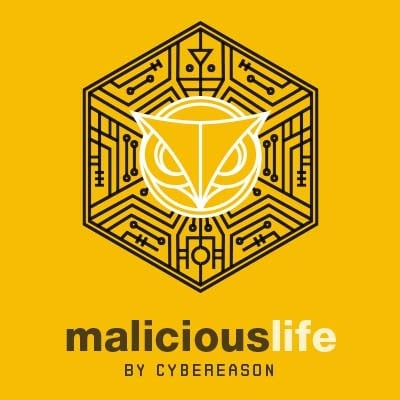
Malicious Life by Cybereason exposes the human and financial powers operating under the surface that make cybercrime what it is today. Malicious Life explores the people and the stories behind the cybersecurity industry and its evolution. Host Ran Levi interviews hackers and industry experts, discussing the hacking culture of the 1970s and 80s, the subsequent rise of viruses in the 1990s and today’s advanced cyber threats.
Malicious Life theme music: ‘Circuits’ by TKMusic, licensed under Creative Commons License. Malicious Life podcast is sponsored and produced by Cybereason. Subscribe and listen on your favorite platform:
All Posts by Malicious Life Podcast
Threat Research lead Assaf Dahan discusses new discoveries about Iranian APTs Moses Staff and Phosphorus that blur the line between state-sponsored attacks and criminal activity - check it out…
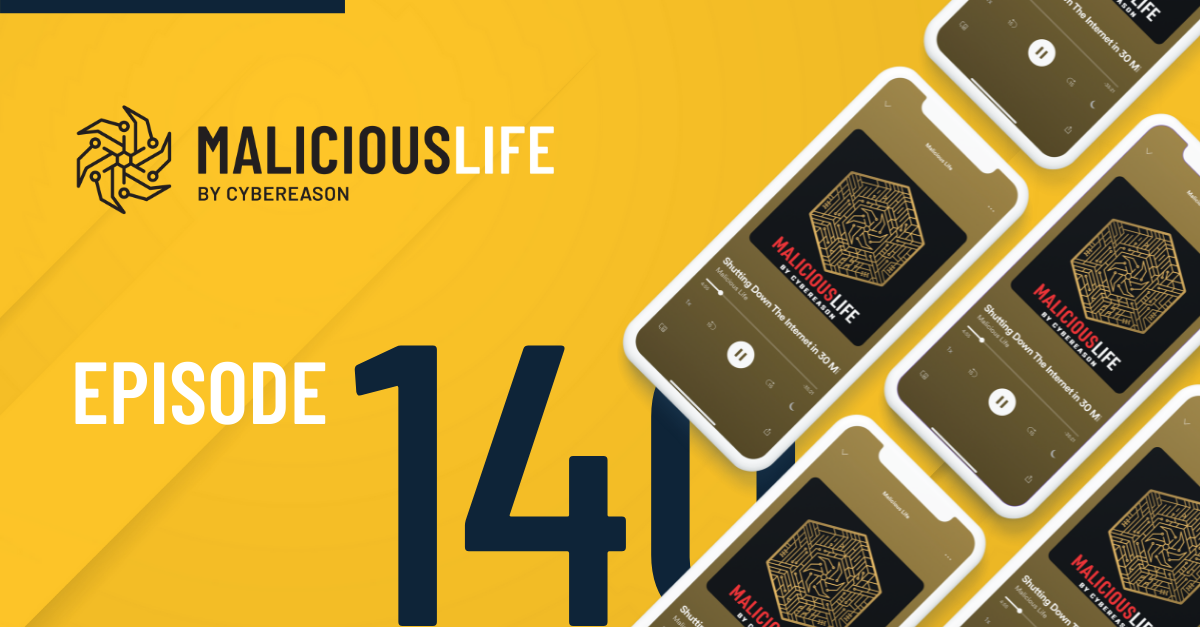
Ken Westin, Director of Security Strategy, discusses the findings in recent report "Organizations at Risk: Ransomware Attackers Don’t Take Holidays" - including why ransomware attacks today are so effective and dangerous - check it out...

Threat Research lead Assaf Dahan discusses new discoveries about Iranian APTs Moses Staff and Phosphorus that blur the line between state-sponsored attacks and criminal activity - check it out…

Ken Westin, Director of Security Strategy, discusses the findings in recent report "Organizations at Risk: Ransomware Attackers Don’t Take Holidays" - including why ransomware attacks today are so effective and dangerous - check it out...
Get the latest research, expert insights, and security industry news.
Subscribe